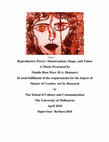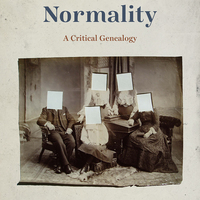Papers by Natalie Rose Dyer
TEXT, 2021
Poetry exploring and provoking conversations about and around how poetry might be understood and ... more Poetry exploring and provoking conversations about and around how poetry might be understood and valued in this contemporary moment.

Dear Sylvia (posthumously), It's tulip season in Holland. Tulips remind me of your red hospital b... more Dear Sylvia (posthumously), It's tulip season in Holland. Tulips remind me of your red hospital blooms-those golden arrowed salutes to a wound, a scission. You could not endure the full throttle of their fruity glare, so you quietened them. Your poppies also seem to howl, red-heart-blooms, but also 'hell flames' (Plath [1965] 1990, 82). It is as if in your poetry there exists two distinctive commentaries, one on red which mostly corresponds with sickness and suffering, and one on blood which frequently corresponds with a vitality and source of desire, albeit which is often tinged with a certain amount of holy dread! On occasion red and blood converge to forge a complex exploration of women's animalistic procreative embodiment in your poetry, which is fraught. In 'Red,' a poem collected in Ted's Birthday Letters (1998), he asserts that red was the colour he identified with you most of all, although he problematically associates red with your wounds. Is he talking about menstrual wounds? He writes: 'Like blood lobbing from a gash,' which conjures an image of you wounded, and perhaps on a more subsumed level he also disturbingly references your bleeding sex in terms of castration (Hughes 1998, 197). Of course, the treatment of menstruation as a wound is pejorative and regressive. It is interesting that Ted picks white as your possible other shade, which is linked with milk and maternal nourishment, that is, in direct contrast to red. In so doing he casts red as

In Western culture menstruation is considered to be a curse, an illness, or at least an aspect of... more In Western culture menstruation is considered to be a curse, an illness, or at least an aspect of feminine “nature” best suppressed. In this thesis I argue that the menstrual taboo has been oppressive to women. Through a closely reading of Sigmund Freud’s writing on femininity, I argue that Freud depicts a monstrous aspect of femininity, connected with the mother and female castration, which he believes must remain repressed. I propose that he is unable to detect a direct connection between female castration and menstruation, because he is himself unconscious of the operations of the menstrual taboo. I draw on Freudian theorist Claude Dagmar Daly who critiques Freud’s negligence regarding the menstrual taboo, and pinpoints a “menstrual complex” at the heart of Freud’s Oedipus complex. In fleshing out the monstrous menstruating mother at the heart of the Oedipus complex I work with French feminist theorists Julia Kristeva, LuceIrigaray, and Helene Cixous and trace this figure to the ...

In this paper I present a close reading of Julia Kristeva’s concept of abjection, as set out in P... more In this paper I present a close reading of Julia Kristeva’s concept of abjection, as set out in Powers of Horror; An Essay on Abjection (1982), with particular reference to her theorisation of an imaginary border of consciousness that originates with the maternal body. I pursue Kristeva’s particular interest in the poet’s confrontation with abjection. However, as it is predominantly a male poet that Kristeva considers in relation to abjection, I consider the female poet’s journey to encounter the abyss. I argue that the female poet is less distanced from the maternal Other because of her animal procreative functions, particularly her menstrual cycle, and she may therefore choose to face the abject periodically, and contribute to what I have termed a menstrual imaginary. Moreover, I argue that this maternal reminiscence is potentially abreacted by the female poet on a periodic basis in the form of poetic catharsis, and is a possible source of self-renewal. Furthermore, I contend that...










Uploads
Papers by Natalie Rose Dyer